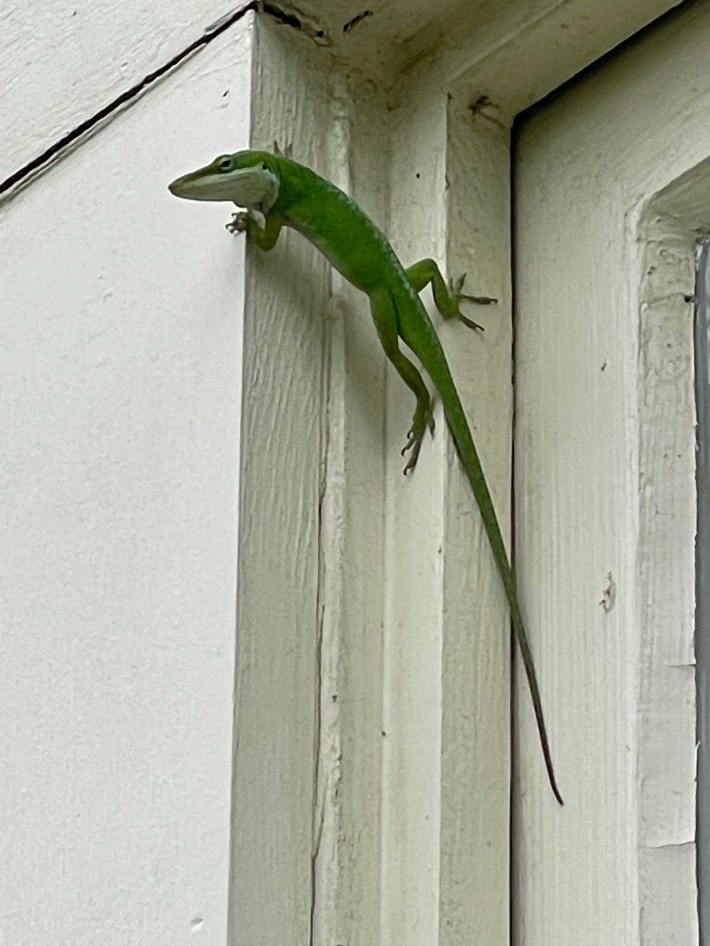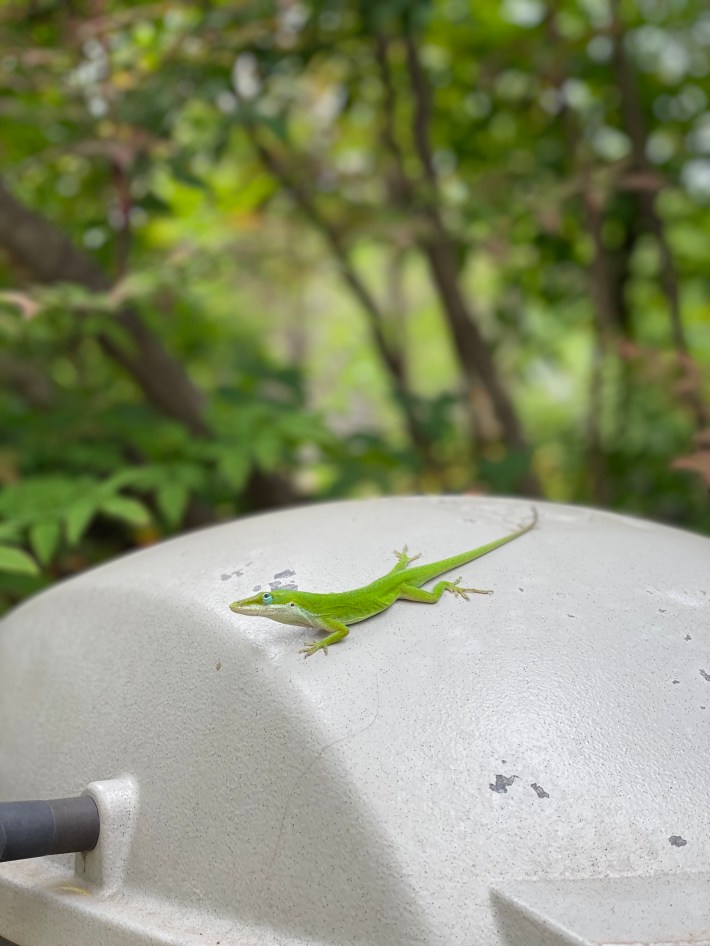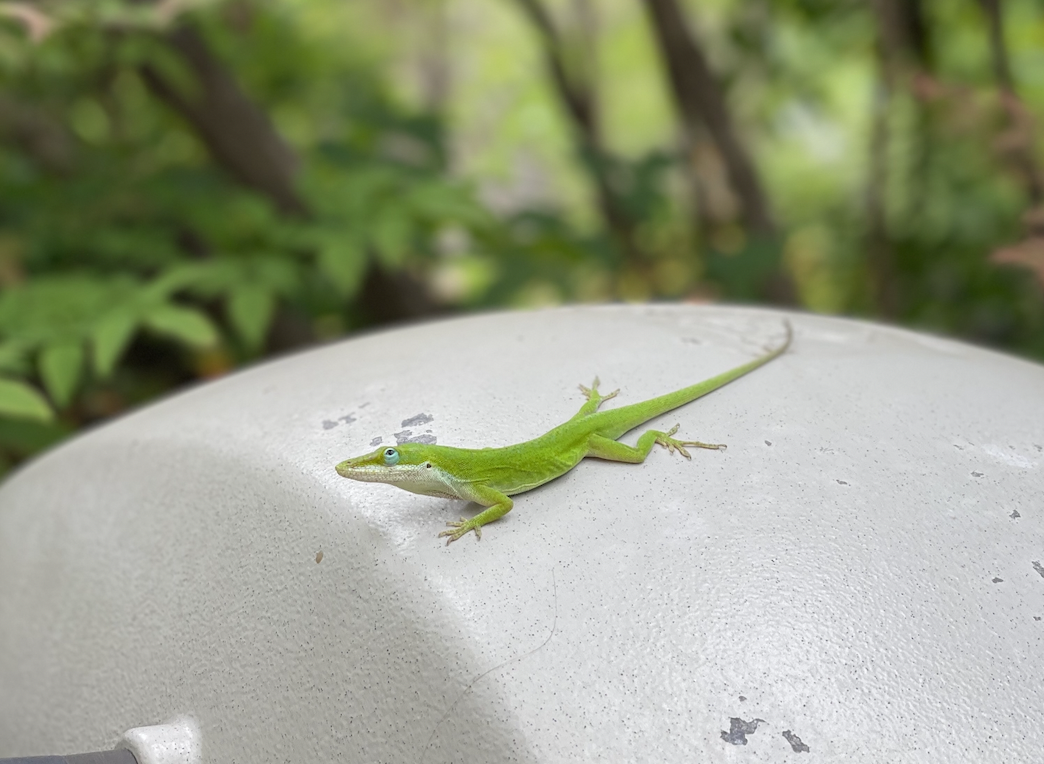The lizard showed up one morning in late January. There had been a massive rainstorm the night before, and because it was chilly, especially for Texas, and also because we live on the first floor of a little old house located in the leafy backyard of a larger old house, the reason for and means of the lizard's arrival made perfect sense. The lizard wanted to be warm and dry, was the reason, and the means was wriggling in through one of several charming cracks near the door. I noticed the lizard hanging out in the corner of the bedroom, and when he clocked my attention, he started scampering under the bed, trailing a dust bunny on one of his feet. I took a video for my creature-loving nieces and nephews: Look! A lizard came inside our house! (They were delighted but also upset that there was no lizard in their house.)
Months passed and the lizard was forgotten—until mid-April, when we came home to see this guy hanging out on the window frame.

This lizard, identified as a Carolina anole, was definitely bigger than the lizard that came inside the house over the winter; clearly he had been eating well. (Yes, I have considered the possibility that the anole I have chosen to make the subject of this post is an amalgamation of several backyard anoles, but please consider and respect that I think I would recognize the unique spirit, the aura if you will, of my anole friend.) A few days later, I saw the anole again, amid some fresh green leaves. A few days after that, he was sunning himself on the lid of the grill. He seemed to have made himself at home.
I became very interested in his comings and goings, and his overall wellbeing. My search history and brain filled up with anole trivia. Was he a slightly different shade of green today? (Possible, as anoles can change color, like a chameleon, though they're limited to shades of green and brown.) Was his tail still whole? (Yes, though anoles can drop their tails and then regenerate new ones.) Was he getting too skinny? (Maybe, anoles eat mostly flies and other insects.) When I didn't see the anole, I'd do a lap of the yard, checking the regular spots, wondering where he was and what he was up to.
Early on, I noticed he was doing something with his throat.
This head bobbing and vaguely obscene extension of his throat flap (called a dewlap) is the anole's method for warding off predators but also for attracting a mate. I have observed the anole many times. Almost always, he was bobbing and flaring, puffing and jerking. He was flaring on the fence, puffing in the tree by the grill upon which he likes to lay and sun himself, absolutely bobbing his ass off on the patio table where I sit outside and work. This little guy was honking!
On one occasion, I was sitting at the patio table in the afternoon and the anole leapt from the grill and ran right at me, stopping to flare his dewlap before skittering away to do some head bobbing on the fence post. It was the closest he had ever gotten to me and I wondered what compelled him to risk such a close encounter. Well, anoles, which are common in many parts of the country, are "active by day in warm weather and often bask in vegetation, occasionally charging away from a basking spot to grab an insect or chase off a rival anole," according to the Savannah River Ecology Laboratory. What a delight to understand my anole friend's behavior! What an honor to be considered a rival anole!
One afternoon, after the anole had enjoyed a nice long nodding and throat-flapping session on the fence, I lost track of him. Then, there he was: On the grill again, but still for once, eyes rolled back ever so slightly in his head. Of course, I don't want to presume, but I'd spent quite some time observing my lizard buddy and I can at least say there was a certain discernible air of satisfaction about him in that moment. He didn't even move when I spent many minutes taking this nature shot.

Please give it up for the anole.






